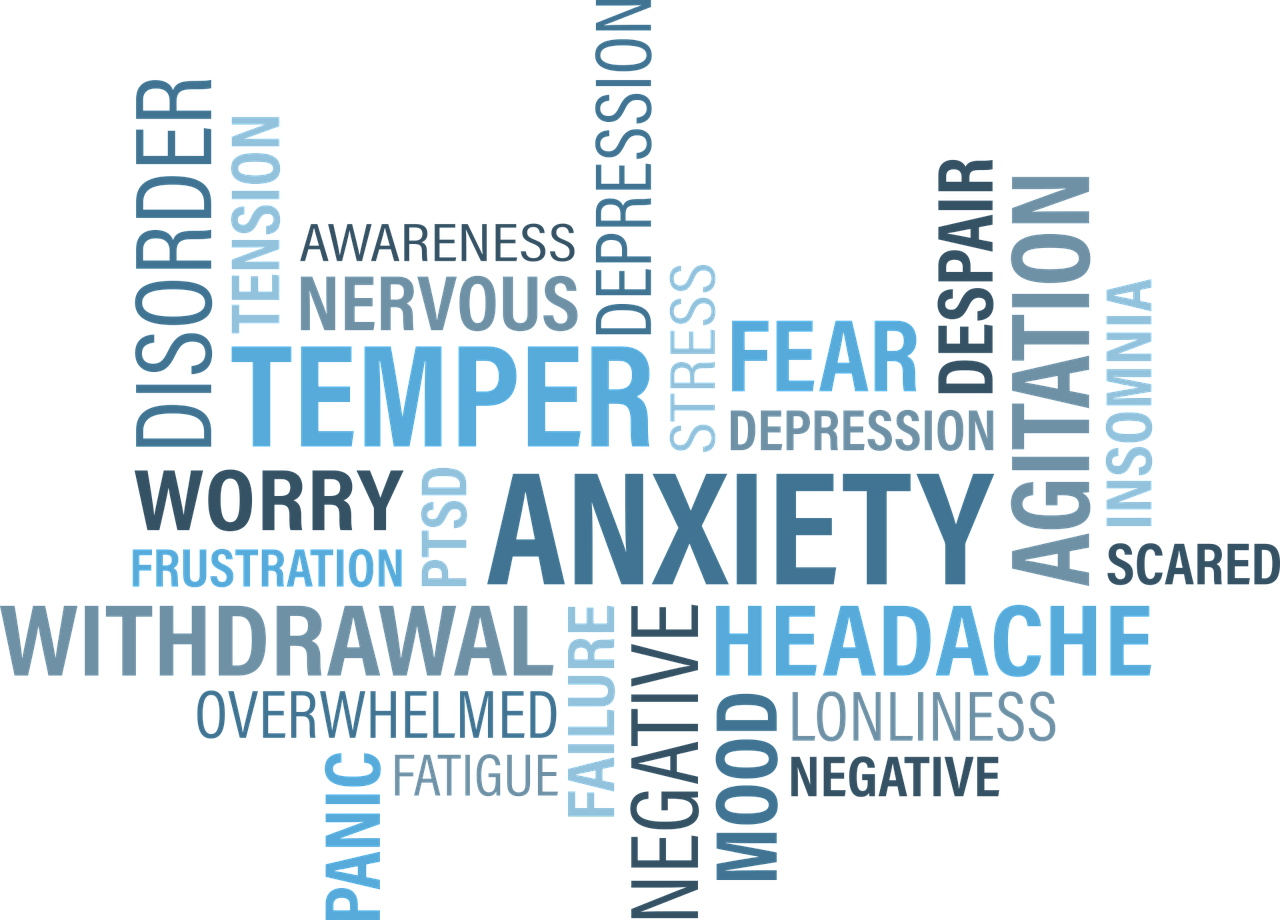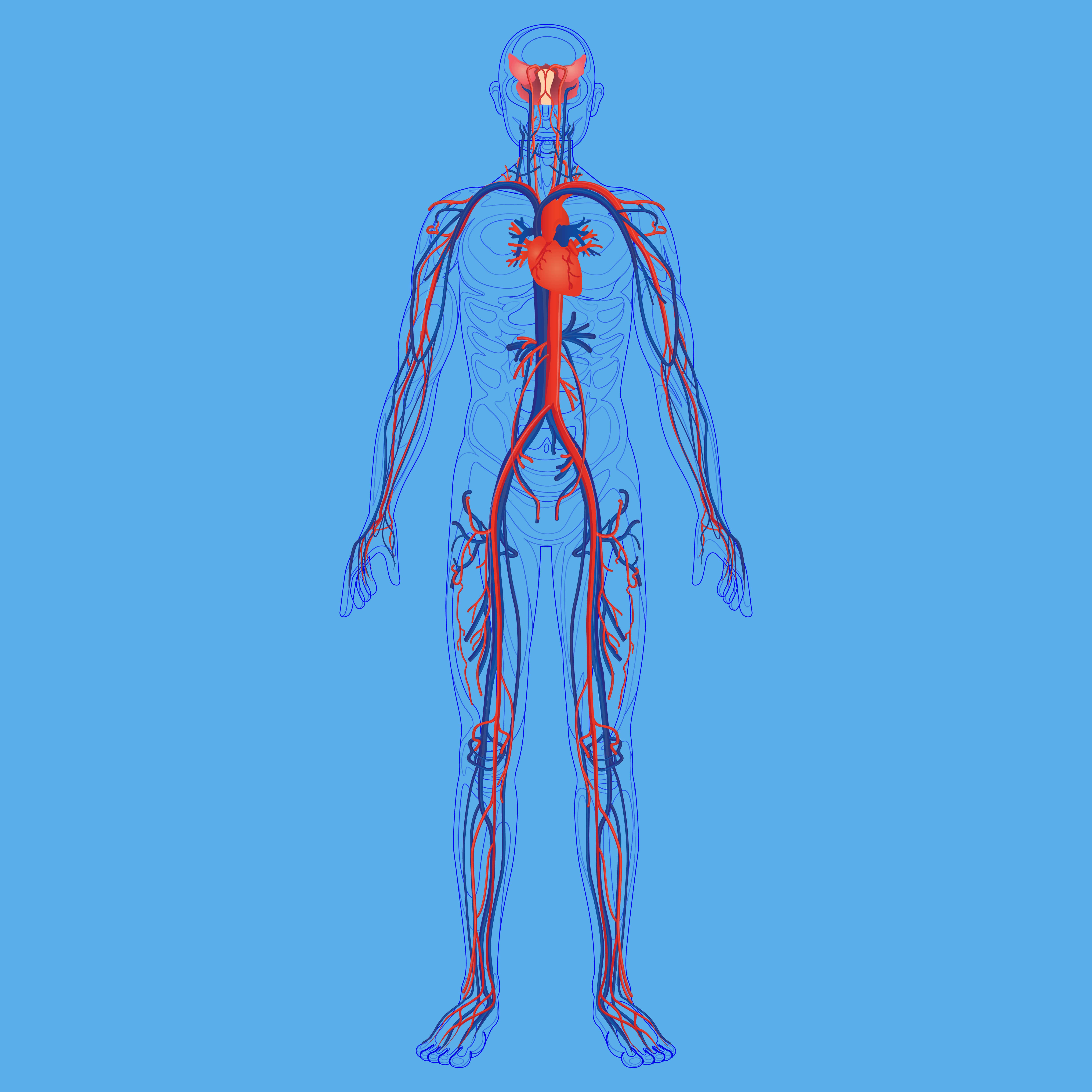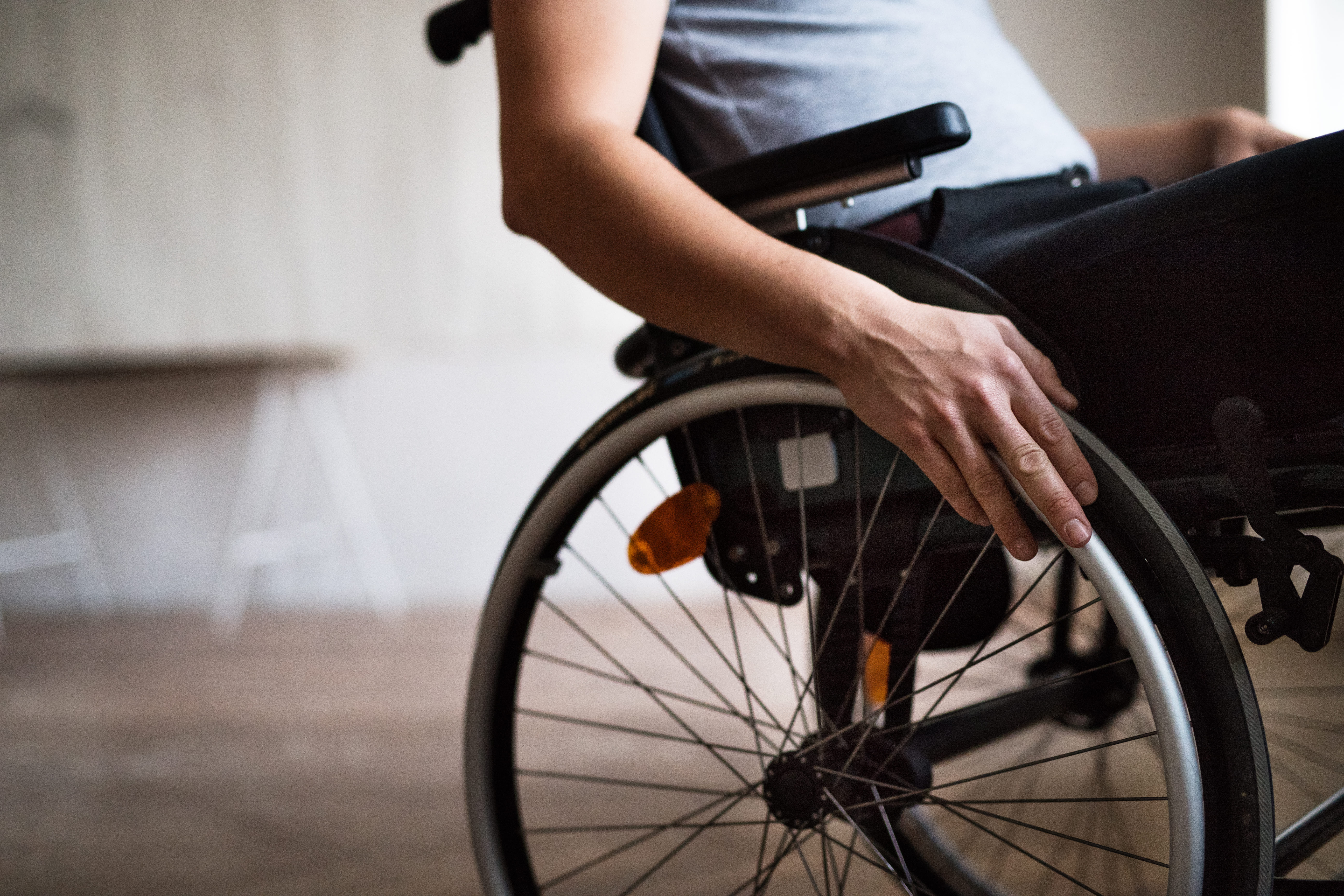.png)
When you think about your day as a whole, how much time do you spend thinking positive thoughts? What about negative thoughts? And have you ever wondered how these two different lines of thinking are affecting your well-being and your ability to cope with your lung disease? Chronic obstructive pulmonary disease (COPD) is an unbelievably complex disease. Like we’ve discussed in previous posts, it’s a “systemic disease’” meaning it can have manifestations in other areas of the body. So, we can’t even begin to imagine all of the ways it affects our physical and mental health.
But despite the complexity of COPD, seemingly small and insignificant things can have a considerable impact on the outcome of the disease. For example, getting on your feet and moving around for just a couple of minutes extra each day could reduce your risk for heart disease and stroke, while helping your body manage hypertension, muscle pain, and stiffness, all of which are common in COPD. What’s more, making small adjustments to your diet like reducing sugar intake and consuming more protein and healthy fats can also have a big impact on your disease outcome.
{{cta('fa8abc2a-1e88-4fa3-82fd-1cb5b9ed43b2','justifycenter')}}
While you may think of “positivity” as something that only impacts your happiness, we’re going to show you in the following sections how it’s inextricably linked to the outcome of your disease and how just a few adjustments to your thought process can make your life a lot easier. As always, if you have any questions for us, feel free to leave them in the comments below or reach out to us via phone or email.
Positivity Promotes Productivity
While you may think of COPD patients as mostly retired people, there is a surprising amount of them who still work part-time or full-time jobs. According to a study published in the European Respiratory Journal, it’s common for COPD patients to miss work due to exacerbations, recurring lung infections, or simply feeling burnt out from dealing with their disease. Another thing to consider is the types of jobs that people work. Someone who works an office job might be less inclined to miss work than someone who works outside in the sun or in a factory where air pollution can lead to respiratory exacerbations.
Equally important to productivity in the workplace is productivity at home. Many COPD patients have obligations at home such as cleaning, paying the bills, and taking care of their children or grandchildren. Completing these obligations can make you feel satisfied and whole so it’s best to stay positive and focus on what you’re trying to accomplish rather than focusing on how challenging it can be with a respiratory disease. But at the same time, everyone has their limits, so you should know what they are and be sure not to cross them.
Positivity Results in Better Decision Making
Good decision-making is paramount to COPD management. Ultimately, your decisions will mean the difference between managing your respiratory symptoms effectively or letting them run their course. For example, on any given day, you have the opportunity to use your medication as it’s prescribed or deal with the side effects of using it improperly. While it may be tempting to increase your dosage if you feel that it isn’t helping, a better decision would be to connect with your doctor first to see if it will have any unintended consequences.

One of the terms you might hear thrown around in the COPD community is something called “shared decision making.” In short, this refers to healthcare professionals working one-on-one with patients to make decisions about the patient’s health. In other words, the doctor isn’t simply telling the patient what to do. The patient is playing an active role in their own health decisions. This benefits the patient because they feel like their personal needs are being met and it benefits the doctor because he/she can learn more about what’s important to COPD patients.
Positivity Prevents Anxiety and Depression
Anxiety and depression are two of the most common mental health conditions. It’s estimated that around 18.1% of the population or 40 million people in the United States have anxiety. What’s more, these mental health conditions are significantly more common among COPD patients than in the general population. According to this study from the European Respiratory Journal, COPD patients are 85% more likely to experience an anxiety disorder when compared to healthy control subjects, and studies regarding depression have shown similar results.

There are several reasons for the high rates of mental illness among COPD patients. One possible reason is that COPD patients spend more time thinking or worrying about their health. From making it to the doctor’s office to taking medication, exercising, and maintaining a strict diet, your illness is something that’s always top of mind. As symptoms escalate, you’ll likely put even more of an emphasis on your health and well-being.

Another reason COPD patients have higher rates of mental illness is due to the physical effects of the disease. COPD is known to cause breathlessness, fatigue, and chronic pain, and rapid changes to your diet and sleep routine due to flare-ups and exacerbations can leave you feeling irritable and groggy. Studies have shown that COPD can even affect our hormones and brain chemistry which can manifest itself as behavioral changes. This is why treating your underlying disease is not only important for your physical health, but your mental health as well.
Positivity Improves Systemic Health
Believe it or not, having a positive attitude can also have beneficial effects on our systemic health. This study found that emotional well-being improves recovery time and survival after physical illness. Other studies have found that positive attitudes in older adults result in a stronger immune system. This is essential for people with COPD because a poor immune system can lead to infections, the primary cause of COPD exacerbation and hospitalization.

Several other health-related benefits of positive thinking include lower blood pressure, a lower risk of heart disease, easier weight management, and healthier blood sugar levels. Weight management, in particular, is an issue that many COPD patients face because they expend a lot more energy and burn more calories than they used to, meaning they tend to be underweight. However, the opposite can also be true. Some people tend to “stress eat” when they’re experiencing anxiety or unhappiness, which can lead to unhealthy weight gain.
Positivity Leads to More Social Support
Social support is extremely important for people with chronic conditions. Between daily conversations with friends and family and interactions with caretakers and healthcare providers, it’s your social support system that is keeping you motivated. If your disease progresses, you may find yourself relying even more on those around you. There’s nothing wrong with this, of course, but you should take care to foster positive relationships early on so that you have that extra support later in life.

If you think about it, you probably enjoy spending time around people who are positive and uplifting, so it’s only natural that others would feel the same. What this means is that, despite how difficult the challenges of COPD may become, it’s always beneficial to remain positive and to spread that positive energy to other people. One of the ways many patients like to spread positivity is through online social platforms like COPD360Social. This is a patient engagement platform that’s hosted by the COPD Foundation and allows COPD patients to discuss treatment options and coping mechanisms for their disease.
Positivity Helps You Stay in Control
“Control” is a very important topic to discuss when you have a chronic disease. Many people who have been diagnosed with a chronic illness suddenly feel like they have lost control of their lives and that their disease now defines who they are and what they are capable of. However, when you look at the big picture, you start to realize that this is not the case at all. Many of the world’s greatest achievers have had some form of chronic illness and the thing that sets them apart the most is that they were able to adapt and overcome the challenges that they were presented with. None of this would be possible without having control.

The first step to maintaining control of your life despite your COPD diagnosis is understanding that there is no “right way” to do something. For example, you might be someone who makes use of mobility aids like canes, walkers, manual scooters, or electric scooters. But you shouldn’t feel guilty or self-conscious about using these things even when people around you are not. Instead, you should feel overjoyed knowing that you’re doing what you can in order to stay active and maintain your independence.

Another important note about control is that you likely have a lot more of it than you believe. While the lung damage caused by COPD is not reversible, your lungs are not the only things that affect your breathing. Your breathing is also affected by your fitness level, your diet, heart health, blood circulation, and many other things. So, if you want to stay in control, focus on things that you can change like eating right, staying active, drinking plenty of water, keeping up with your oxygen therapy, and visiting the doctor regularly. Once you realize that you have control over all of these things, you’ll be a lot happier and more positive about your condition.
{{cta('b59df0c1-c4de-47a8-8e1c-0d33d4b414aa','justifycenter')}}
The alternative to being “in control” is having a “lack of control.” If you take on the mentality that you’re not in control, you might begin to believe that your disease, healthcare providers, friends, or family members are responsible for your happiness and well-being. And well you should certainly rely on these people for help, it’s ultimately up to you to make a difference in your own life and do what’s necessary to improve your health.
How to Increase Positivity in Your Life
While negativity has a huge impact on the outcome of your respiratory disease, the good news is that there are many different ways to promote positive thinking in your life. The first and possibly most effective method is something called cognitive behavioral therapy (CBT). This is a form of psycho-social intervention that’s used for a number of different purposes including treating alcohol and drug abuse, eating disorders, marital problems, and mental illness. Recently, it’s come to light how effective CBT can be when it comes to providing coping skills to people with chronic conditions like COPD.

CBT is based on the premise that mental health conditions like anxiety and depression are caused by inaccurate thinking patterns and patterns of unproductive behavior. CBT aims to identify these things and take steps to reverse them and replace them with productive and positive thoughts and behaviors. During CBT, you will work one-on-one with a psychologist who will guide you through the process of correcting these things. The ultimate goal is to teach you the skills you need to be able to correct them on your own without the help of a professional.
Conclusion
COPD is one of the leading causes of morbidity and mortality worldwide. It’s estimated that around 65 million people in the world have been diagnosed with COPD and it affects some 16 million people in the United States alone. While these numbers may be shocking, it helps to know that many of these people have gone on to live long and happy lives by making healthy lifestyle choices like exercising, eating a well-balanced diet, and following their doctor’s instructions when it comes to oxygen therapy and medication.
{{cta('43b79c5e-6bd6-4f02-ac27-2d038d20c146','justifycenter')}}
Modern medical research has proven beyond a shadow of a doubt that mental well-being also plays a role in our overall health. People who embrace a positive line of thinking are better equipped to deal with anxiety and depression and in turn, they can mitigate many of the risks associated with COPD such as heart disease, high blood pressure, and stroke. Taking steps to reverse negative thinking can have many beneficial effects in both the short and long term. For many people, cognitive behavioral therapy is the preferred method for accomplishing this.
.png)
Here at LPT Medical, we want to make it as easy as possible for COPD patients to lead happy and productive lives. That’s why we offer lightweight and reliable portable oxygen concentrators like the Caire FreeStyle Comfort and the Inogen One G5. Unlike oxygen tanks, these devices will allow you to travel wherever and whenever you please. And since they’re so easy to use, you’ll be able to focus more of your attention on living your life rather than worrying about whether or not your oxygen needs are being met.
To learn more about portable oxygen concentrators, reach out to us either by phone or email.

